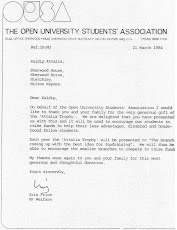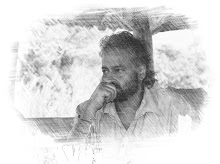Kiswahili: In spite of local obstacles, cultural reluctance and the frequent use of English, East Africans still have their own common mother tongue.
If nothing else unites the three East African countries Uganda, Kenya and Tanzania, the language does. Kiswahili is now officially the common language in the East African Community.
And why not? The non tribal language has been used by East Africans for decades. Through the days of the colonial powers it was the identity of East Africans, after independence it rooted in each of the three countries in different ways and the language has always been closely linked to the people of East Africa.
Eliminates tribal languages
Kiswahili (Swahili): Is spoken in all countries of Eastern Africa .
Tanzania: Deliberate efforts were made by the independent nation to promote the language. The former Pr Julius K. Nyerere managed to unite more than 120 different tribes with each their tribal language in one common language and a common identity as Tanzanians.
Swahili is the national as well as the official language in Tanzania - almost all Tanzanians speak Swahili and are unified by it. Tanzania's special relations with countries of southern Africa was the chief reason behind the spread of Swahili to Zambia, Malawi, South Africa, and other neighbouring countries to the south.
Kenya: Swahili is the national language, but official correspondence is still conducted in English.
We need Kenyan's to make that extra effort to to corresond in Swahili, since out of the three nations, Kenyans hold a better stabding in the whole wide world. Their stand will bench mark the effort to establish Swahili a step further. However Pr Mzee Jomo Kenyatta did make Swahili a compulsory subject in Schools and all students did have to sit for examinations.
Uganda: The national language is English but Swahili enjoys a large number of speakers especially in the military. As a matter of fact, during the Pr Idi Amin's rule Swahili was declared the national language of Uganda . However, the declaration has never been seriously observed nor repealed by the successive governments, and many Ugandans still see the language as the voice of the military.
The Swahili language is basically of Bantu (African) origin. It has borrowed words from other languages such as Arabic probably as a result of the Swahili people using the Quran written in Arabic for spiritual guidance as Muslims.
The formation of the Swahili culture and language is by some scholars related to the intercourse of African and Asiatic people on the coast of East Africa.
The word ‘Swahili’ was used by early Arab visitors to the coast and it means ‘The Coast’. Ultimately it came to be applied to the people and the language.
writes: Michael Bech is MS Tanzania's information officer
Subscribe to:
Post Comments (Atom)
Attalia Trophy

Open University MK
Attalia Trophy ~ OUSA
Ref: IP/MJ 21 March 1984
Kuldip Attalia,
Sherwood House,
Sherwood Drive,
Bletchley,
Milton Keynes.
Dear Kuldip,
On behalf of the Open University Students’ Association, I would like to thank you and your family for the very generous gift of the “Attalia Trophy”.
We are delighted that you have presented us with this and it will used to encourage our students to raise funds to help their less advantaged, disabled and housebound fellow students.
Each year the “Attalia Trophy” will be presented to “The Branch coming up with the best idea for fundraising”.
We will thus be able to encourage the smaller branches to compete to raise funds.
My thanks once again to you and your family for this most generous and thoughtful donation.
Yours sincerely,
Iris Price
VP Welfare
OUSA ~ The Open University Students Association
OUSA Office Sherwood House, Sherwood Drive, Bletchley, Milton Keynes MK3 6RN
Phone: 0908 71131
Kuldip Attalia,
Sherwood House,
Sherwood Drive,
Bletchley,
Milton Keynes.
Dear Kuldip,
On behalf of the Open University Students’ Association, I would like to thank you and your family for the very generous gift of the “Attalia Trophy”.
We are delighted that you have presented us with this and it will used to encourage our students to raise funds to help their less advantaged, disabled and housebound fellow students.
Each year the “Attalia Trophy” will be presented to “The Branch coming up with the best idea for fundraising”.
We will thus be able to encourage the smaller branches to compete to raise funds.
My thanks once again to you and your family for this most generous and thoughtful donation.
Yours sincerely,
Iris Price
VP Welfare
OUSA ~ The Open University Students Association
OUSA Office Sherwood House, Sherwood Drive, Bletchley, Milton Keynes MK3 6RN
Phone: 0908 71131


No comments:
Post a Comment